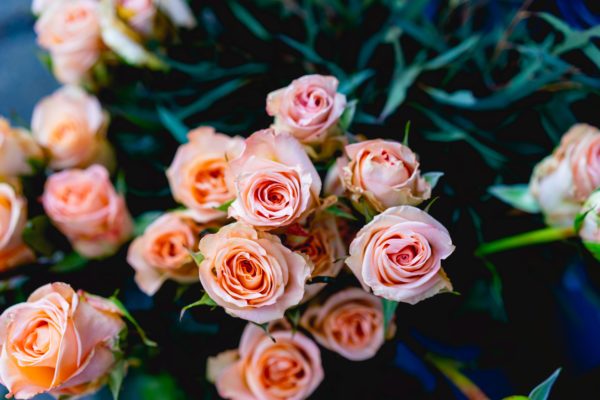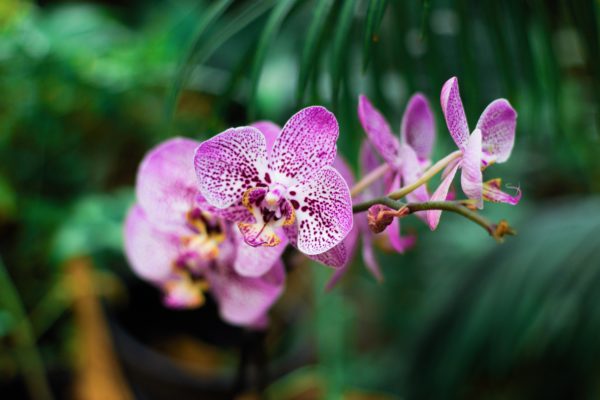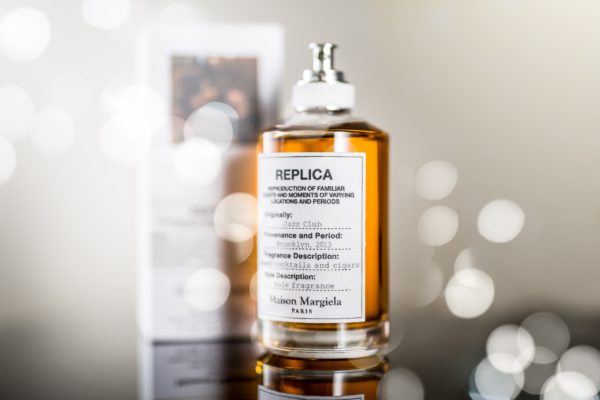The ways in which we find a great perfume are not unlike the way we find a great wine. Spending time truly appreciating the bouquet and understanding the composition are a few of the ways we adopt in the search for your perfect signature scent.

Photo by Jessica Weiller on Unsplash
It is important to take into consideration some points and most of all using instinct and inspiration to identify what works and what doesn’t. Not all fragrances are going to work for you, and that’s perfectly fine as it will narrow the search for the individual expression you wish to convey to the world.
Here we show you how to simplify the experience of looking for your signature scent.
“A woman’s perfume tells more about her than her handwriting” ~ Christian Dior

Photo by Dan Gold on Unsplash
1. Sampling : The First Step
A lot of people will buy a fragrance based completely on their first impression. One of the most important steps in finding the right fragrance for you is to try it on your skin. Trying fragrance on the skin unveils how it will work with your chemistry and this process takes some investment of time.
Every experience with fragrance is influenced by the time of day, your skin type, the season, humidity and even the mood you are in. If in doubt follow the 5/2 rule : Do not not smell more than five perfumes at once. Pick two, then put each on either arm and smell the perfume on your skin. Smelling a fragrance on your body is key to finding the perfect scent.
2. Something You Love : Discovery Time
One piece of advice I like to give people when trying a new fragrance is to keep in mind the things you love. The smell of baked bread, the natural and sensual smell of leather, the heady bouquet of freshly cut roses, the sweetness of summer berries, the refreshing and invigorating scent of orange, the crisp exhilarating smell of ocean air or the headiness and aromas of spices you might like to cook with. Thinking of everyday scents is a very useful tool when selecting a fragrance that represents aromas you love and feel comfortable with.

Photo by Monika Grabkowska on Unsplash
3. Top Notes: Luring You In
The top notes or head notes of a fragrance are usually the lightest of all notes. Representing the first impression and recognized immediately after application to the skin. As such the top notes will shape your first impression and should last long enough to experience them. Fresh and fruity the top notes such as orange, bergamot, grapefruit, passionfruit, water lily, cassis and lemon are usually light and announce themselves as soon as you spray. The top notes generally last for 10 – 15 minutes before fading and beginning the transition to the middles notes.
Note : Do not rub or bruise the fragrance upon application as this can alter the chemistry and therefore the the smell of the fragrance.
4. The Middle Notes: Full Bloom
The foundation of a fragrance lies in the middle or heart note making up 40% – 80 % of the fragrance. These notes are usually full – bodied floral notes lasting between 2 to 4 hours. Heart notes are made of potent floral or oils such as rose, geranium, jasmine, ylang ylang, neroli, lavender, tuberose, gardenia, orchid, narcissus and geranium. The purpose of the middle notes are enchant and intoxicate the tester into a whirl of memory and emotion. Middle notes are pleasing, mellow and balancing as well as more complex than the top notes.

Photo by Yeimy Olivier on Unsplash
5. The Base Notes: Bringing It All Together
The base notes are usually associated with the dry down as the fragrance combines middle and base working together to deepen the scent introduced by the top notes. Together they create the full body of the fragrance comprising of around 10% – 25% of the fragrance. The base notes are the final notes that appear after the middle and top notes have evaporated. Rich and smooth in aroma, they are the longest lasting of all three notes. Commonly used base notes include sandalwood, patchouli, vanilla, clove, incense, leather, vetivert, tonka bean, oak moss, cedarwood, musk and amber.

Photo by Gades Photography on Unsplash
6. Smell And Emotion: Connecting
On a physiological level, inhaling a fragrance stimulates the part of your brain where taste is examined and emotional memories are stored; it also connects to the areas that are associated with with heart rate, blood pressure, breathing, stress levels, and hormone balance. Of all of our five senses, only our sense of smell is linked directly to our “emotional control center”.
Therefore, knowing that different scents evoke different emotions and memories we are then able to narrow down those which specifically engage in a relationship with you on this level.
7. Body Aroma: All In The Chemistry
Diet and skin type are two ways that can have a tremendous effect on a person’s overall scent, which also interacts with fragrance. A person with a balanced diet – composed of meat, veggies, fruits, nuts, smaller amounts of dairy – smells differently from a person with a rigid diet of just one or two of the main food groups. Vegans and vegetarians smell different from people whose diet consists mainly of meat or fish. People who frequently eat spicy food also have a distinct, strong smell that can impart a spicy undertone to fragrances. Similarly, taking medication for prolonged periods can also alter the chemical makeup of the body, significantly affecting bodily scent and thus fragrance.

Photo by Evi Radauscher on Unsplash
There are three major skin types, and each type reacts differently to fragrances. Dry skin is characterized by nearly invisible pores, low elasticity, and rough complexion. Fragrances easily evaporate on dry skin as there is not much oil for the fragrance molecules to adhere to. For fragrances to work well on dry skin, it is ideal to moisturize with an unscented – or similarly scented – lotion before spraying on fragrance to gain longevity from the fragrance.
Normal skin is characterized by an almost flawless complexion with few or no imperfections, and barely visible pores. As normal skin has more oil content than dry skin, fragrances have a better lasting power. The best skin type for fragrances to cling to is oily skin. Oily skin on the face may not be desirable, but on the rest of the body, it means better adhesion to fragrance molecules.
![]()
The effect of skin type on fragrances is especially remarkable with fragrance flowery, citrusy or fruity aromas as these have light scents and high volatility. On the other hand, oily skin perfectly complements musky perfume as the oil molecules bond together to shape depth and character to the scent.
8. EDT vs EDP: Everyday or Date Night?
Eau De Toilette usually containing less than 10% essential oil you’ll find an EDT has a lower price point yet is simply perfect for everyday use. The lighter, uncomplicated scent will usually last on your skin for up to 4 hours – carrying your fragrance throughout the day will allow you to refresh where needed.
With a higher concentration of essential oils (Up to around 15% to 20%) an EDP provides a richer, deeper scent than an EDT. Great for those who want a perfume with longevity and you should be able to enjoy the scent on your skin for around 5-6 hours. So, if you’re looking for something that is more ‘date night’ than ‘everyday wear’ select a luxurious Eau de Parfum.
Note: Bigger is not necessarily better when purchasing a bottle of fragrance. Perfume like wine oxidizes when it drops to half, therefore, opt for the smaller size for capturing the original magic of your fragrance.

Photo by Antonio Ron on Unsplash
9. Time Of Year: Which Season Are You?
SPRING:
Welcome the season of reawakening with exotic floral fragrances and delicate feminine scents.
SUMMER:
During warm seasons, it’s best to go very light on perfume. Humidity and heat can intensify smells. Look for fresh, clean fragrances with hints of fruit.
FALL:
Fall is the call to look to deeper floral and earthy fragrances.
WINTER:
Time to start experimenting with some stronger scents. Think woodsy, spicy and even musky.

Photo by Robin van der Ploeg on Unsplash
10. How To Tell If A Fragrance Is Your “Signature” Style : Do You
Ultimately fragrances are not meant to mask your natural scent, instead they should enhance it. Therefore, “your” signature fragrance represents an extension of who you are, your confidence, style, invoking happy memories and makes you smile when you wear it.
Conclusion: Smell with your brain not your nose it will give you the “signature style” fragrance that could last a lifetime.